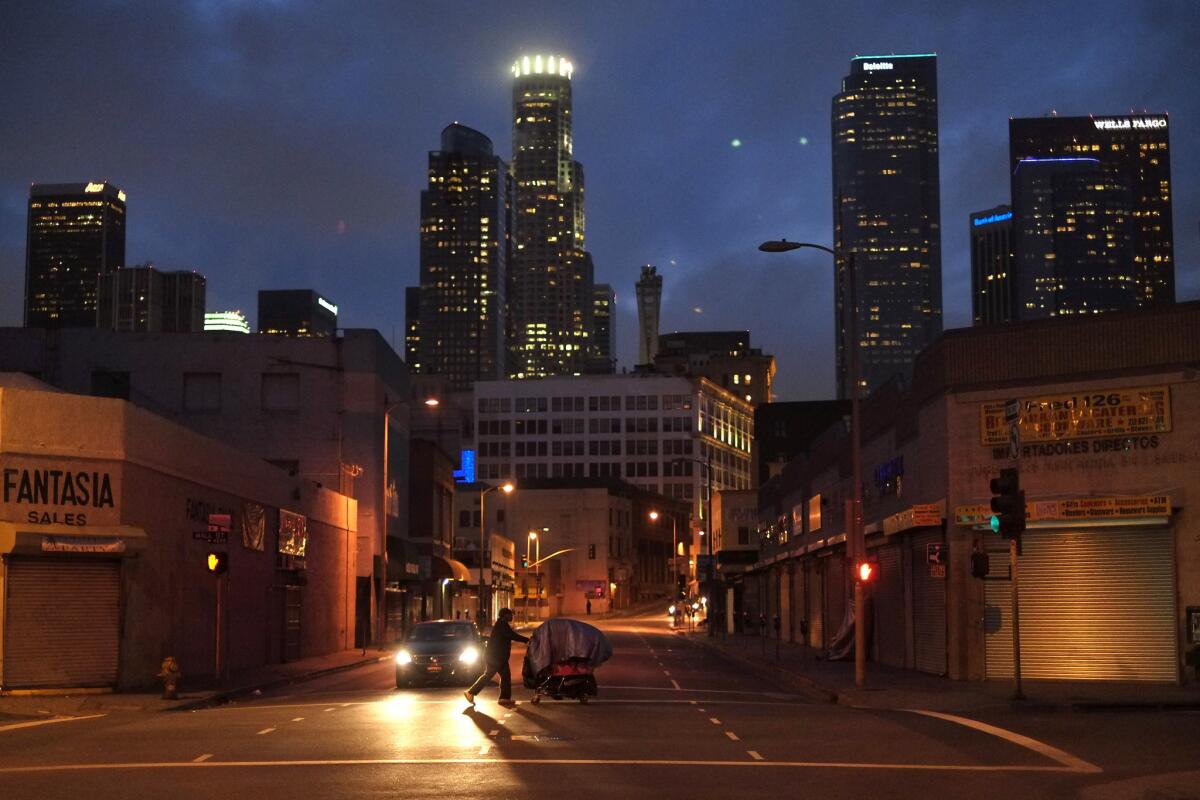Court panel appears skeptical of L.A. ban on homeless living in cars

- Share via
A federal appeals court on Thursday appeared to be leaning toward striking down a Los Angeles city ban on homeless people living in their cars or recreational vehicles on public streets and in parking lots.
A three-judge panel of the U.S. 9th Circuit Court of Appeals, meeting in Pasadena, seemed to embrace arguments from civil rights attorney Carol Sobel that the criminal law was unconstitutionally vague.
“It’s very hard to figure out what you’re talking about,” Judge Marsha Berzon told the lawyer for the city.
The city’s ordinance dates back to 1983, but came under fire in 2010 when a special Los Angeles police task force, responding to neighborhood complaints, began aggressive enforcement in Venice.
A group of homeless car dwellers filed suit in 2011 challenging the law. U.S. District Judge R. Gary Klausner dismissed the suit, and the plaintiffs appealed.
Unlike other cities, which bar sleeping in vehicles or overnight parking, Los Angeles prohibits using cars as “living quarters” both overnight and “day-by-day, or otherwise.”
Deputy City Atty. Blithe Bock told the court that police determined a vehicle was lived in by the “totality of circumstances,” including whether it appeared to be operating.
Drivers were ticketed if police found things in their car such as bottles of urine, clothing and open food that suggested it was a “living quarters,” she said.
“You’re using your car as a living space, you’re using your car as a toilet, you’re using your car as a kitchen,” Bock said.
Sobel said there were no clear standards for what property or items you could keep, or for how long you could rest in your vehicle.
“So you can’t just sit in your car and nod off?” Judge Harry Pregerson asked Bock.
“He was wrapped in a blanket,” Bock responded, referring to one of the plaintiffs.
“What’s wrong with that?” Pregerson said.
Judges also questioned the rationale for the stepped-up enforcement. Bock said it came in response to a spike in crime by young transients and complaints of trash being dumped on neighbors’ property.
“People were coming home and finding refuse on their front lawn,” Bock said.
Sobel suggested that gentrification and tension between new and old residents were the real drivers of the heightened enforcement, and Pregerson seemed to agree.
“Tell me if I’m wrong,” Pregerson told Bock. “You had a task force of police officers who were told their job was to clean up the Venice area of all these homeless people because people in the neighborhood didn’t like it.”
Pregerson also suggested there are better ways to handle homeless people than rousting them from their cars.
“Long Beach treats people differently,” he said. “If they find a family, they take the kids and get them in a facility and make sure they’re enrolled in school.... The next thing they do is try to find housing for them.... Why can’t the city of Los Angeles do that?”
“The situation is heartbreaking,” Bock answered. “But it is a question for legislators.”
“That’s a cop-out,” Pregerson shot back.
After the hearing, Bock said police referred car dwellers to shelters and other services that could help them get off the streets.
“Homelessness is a horrible problem, we’re all aware of that,” she said. “But we have a whole city to take care of.”
A police spokeswoman said the department is continuing to enforce the vehicle habitation ban. Outside court, some of the homeless plaintiffs and their supporters accused the city of trying to drive them out of town.
“They’re intimidating people, driving up and making a lot of noise,” said plaintiff Steve Jacobs, who lives in his SUV in Venice. “There are fewer and fewer RVs there all the time.”
The court is likely to rule on the case in the next few months.
ALSO:
Cold air brings sub-freezing temperatures to region
Two-thirds of L.A. County social workers join labor strike
Former LAPD Chief William Bratton returns to top NYPD position
[email protected]Twitter: @geholland
More to Read
Sign up for Essential California
The most important California stories and recommendations in your inbox every morning.
You may occasionally receive promotional content from the Los Angeles Times.










